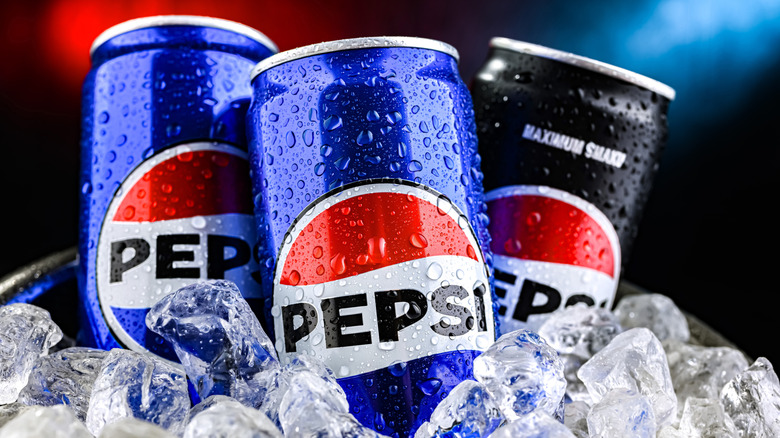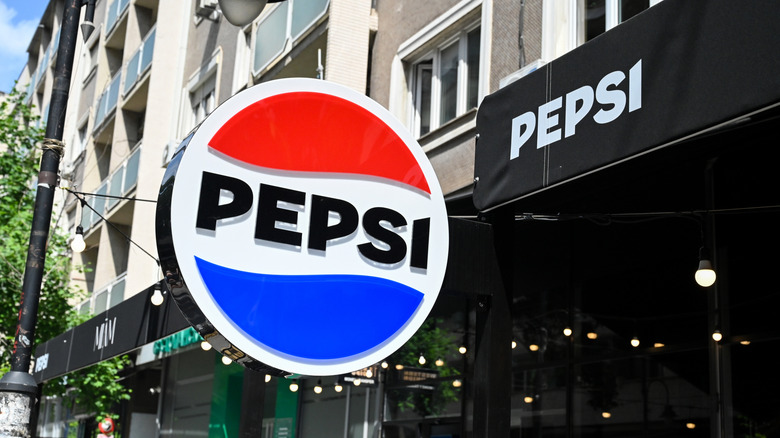Why The US Is Suing Pepsi
On Friday, January 17, the Federal Trade Commission launched a suit in New York against PepsiCo, alleging the company is giving preferential treatment to one particular big-box retailer. The FTC claims that promotional payments to the vendor in question — which is not specifically named in the suit — allowed it to offer lower prices on Pepsi products than the competition. That, the FTC claims, violates the Robinson-Patman Act, which dictates that charging different prices to competing companies is illegal.
FTC chair Lina M. Kahn said in a statement that "When firms like Pepsi give massive retailers a leg up, it tilts the playing field against small firms and ultimately inflates prices for American consumers." Although no specific company was named in the suit, Walmart is believed to be the unnamed big-box store, according to an anonymous source who spoke with the Associated Press. The retail giant has had its hands full recently with a recall for broccoli potentially contaminated with listeria and another produce recall last summer that also affected Aldi. If the allegations in the lawsuit are true, it could mean that before the lawsuit is settled, customers might be paying a little extra for PepsiCo's newest beverage ... unless they purchase it from Walmart.
The lawsuit against PepsiCo coincides with a new flavor debut
The timing of the lawsuit against the beverage behemoth couldn't be much worse. On January 20, Pepsi plans to release a new flavor to its permanent portfolio of soft drinks. Wild Cherry & Cream is being debuted in regular and zero-sugar varieties in 12-ounce cans, with 20-ounce bottles planned for a limited-time release after the new flavor launches. Pepsi's Wild Cherry flavor will remain on the shelves. However, Pepsi Mango — a "permanent" flavor that debuted in 2021 — is going to be phased out, not unlike the discontinued Pepsi flavor you probably forgot existed.
Regarding the FTC's lawsuit, PepsiCo remains defiant. Price discriminations aren't necessarily illegal according to the FTC, specifically when "they reflect the different costs of dealing with different buyers or are the result of a seller's attempts to meet a competitor's offering." Meanwhile, the soft drink company said in a statement received by the AP that "PepsiCo strongly disputes the FTC's allegations, and the partisan manner in which the suit was filed. We will vigorously present our case in court."

